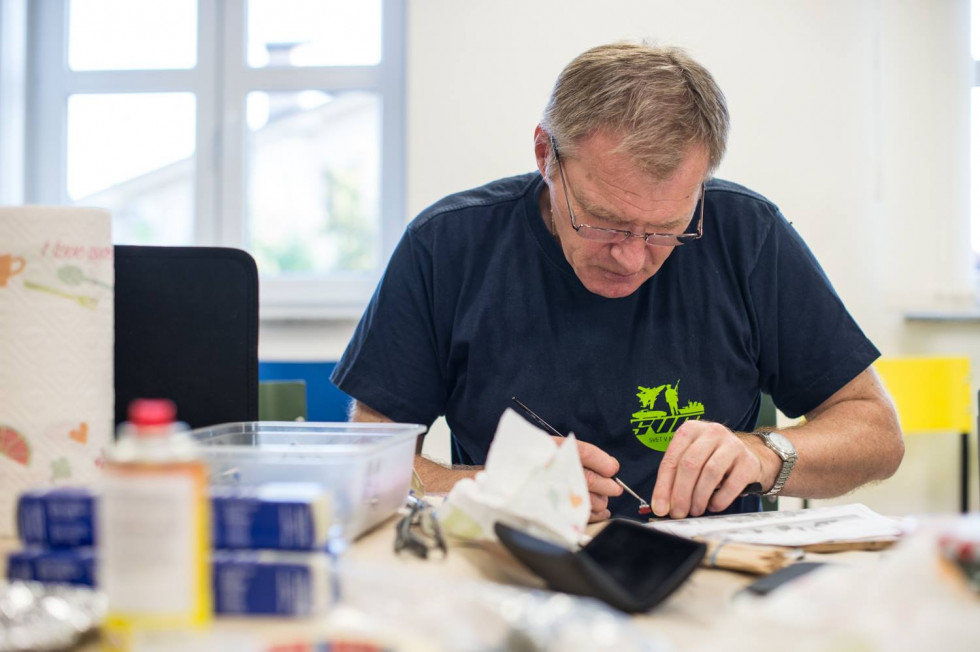Contribution of the European Social Fund to active and healthy ageing
- Government Office for Development and European Cohesion Policy
- Ministry of Labour, Family, Social Affairs and Equal Opportunities
As the population of older people is growing sharply, population ageing is poised to become one of the most significant social transformations of the 21st century. In 1990, the United Nations General Assembly voted to establish October 1 as the International Day of Older Persons. The holiday is an opportunity to highlight the important contributions that older people make to society and raise awareness of the opportunities and challenges of ageing in today’s world.
A series of projects and programmes implemented in the scope of the Operational Programme for the Implementation of EU Cohesion Policy in the Period 2014-2020 (OP) address old age-related issues and pathways of coping with existing — and preventing future — old age inequalities.
Government Office for Development and European Cohesion Policy, i.e. the Managing Authority of the operational programme, has so far approved a total of EUR 31.7 million from the ESF to support active and healthy ageing in Slovenia. Thus, the Ministry of Labour, Family, Social Affairs and Equal Opportunities (MLFSA), i.e. the Intermediate Body, aims to encourage intergenerational cooperation, prevent workplace hazards and contribute to creating a work environment that promotes active and healthy ageing. The ministry and the relevant stakeholders involved in the design and implementation of projects and programmes work together towards a common goal – to extend working lives of older workers by enhancing their skills and competencies, to address prejudice and negative stereotypes about older workers, and to empower employers to successfully manage an ageing workforce.
The project Comprehensive support to companies for active ageing of employees, for example, involved as many as 7,702 workers from different companies in a single year. Another project, Comprehensive psychosocial support to companies for active ageing of employees – Forward, builds on a multidisciplinary approach carrying out prevention measures in the form of psychosocial support to reduce the amount of sick leave.
All measures supporting active and healthy ageing need to be designed to take on board the complex interactions between work, health, age and retirement, that is why EU-funded projects, such as for example Upgrade of analysis models in the pension system and Development of a risk assessment model in the workplace, significantly contribute to designing the most appropriate system-wide approach to tackle these issues.
A total of EUR 37.5 million will be ring fenced for active and healthy ageing by the end of the programming period. The amount will be spent on training programmes and employee motivation programmes targeting as many as 10,770 older workers, and on measures targeting employee absenteeism reduction which will be implemented in 216 companies.
ESF funding also promotes employment of older people, including through the ESF-funded programme Promoting employment of older people – Active till retirement which is implemented by the Employment Service of Slovenia. The programme aims to encourage employers to hire jobless workers over 58 years for at least two years by providing wage subsidies. 274 older persons participated in the programme in 2018 with the final target standing at 900.
A number of training and informal education programmes for the unemployed aiming to support the upskilling for employee performance improvement and enhance the competitiveness of the unemployed involved a total of 7,105 older persons.
Measures that aim to improve access to affordable, sustainable and high-quality services, including health care and social care services of general interest, have been delivered by the Ministry of Labour, Family, Social Affairs and Equal Opportunities and the Ministry of Health. The latter began implementing the activities that support better interaction between a variety of services of long-term care. To this end, a series of training and education programmes were deployed. The project and its activities were showcased at 22 dissemination events which saw participation of over 1,100 individuals. Additionally, 153 professionals were trained to use the new integrated assessment tool to be able to determine eligibility for long-term care services. Pilot activities have been carried out since 2018 to support the implementation of the long-term care law on the ground. The ministry has also started remodelling the existing infrastructure network of community-based senior citizens services and programmes.


